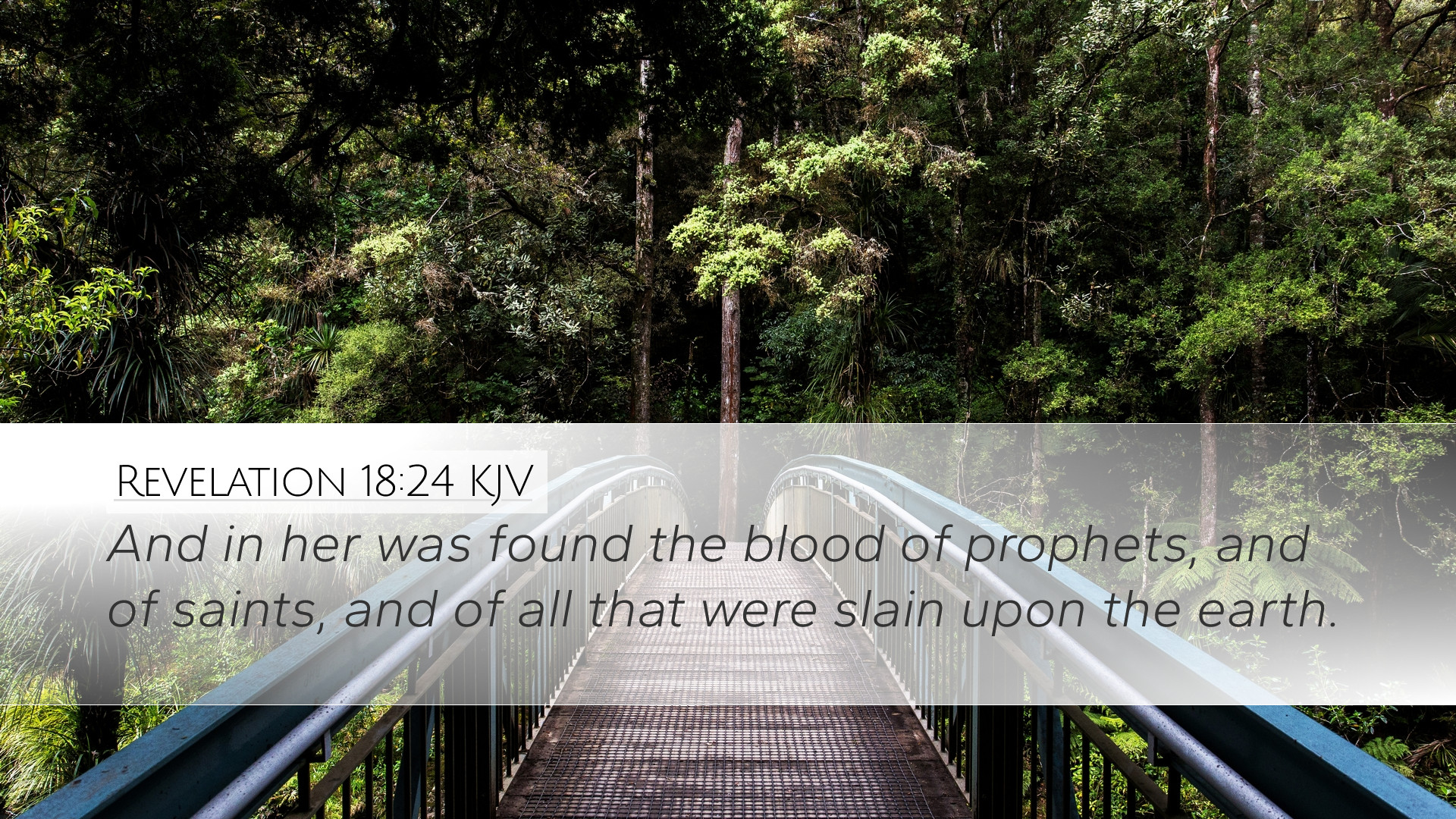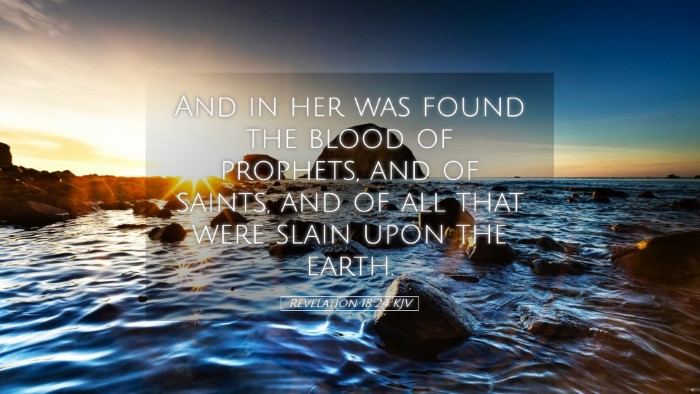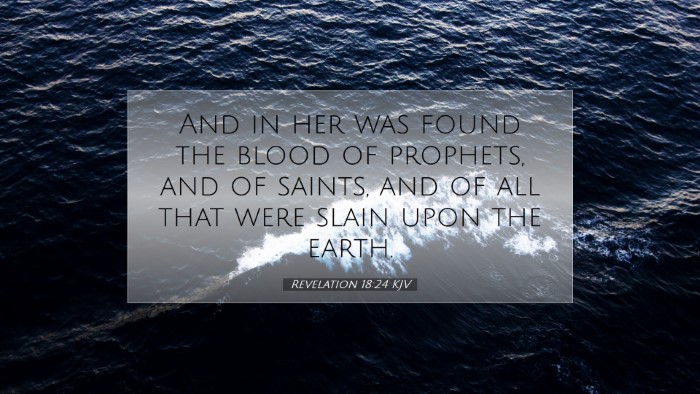Commentary on Revelation 18:24
Revelation 18:24 states: "And in her was found the blood of prophets, and of saints, and of all that were slain upon the earth." This verse encapsulates the profound judgment against Babylon, symbolizing the epitome of human pride and rebellion against God. The following commentary synthesizes insights from Matthew Henry, Albert Barnes, and Adam Clarke, providing a comprehensive exploration of its theological implications.
Contextual Background
The context of Revelation 18 is vital for understanding the significance of this verse. Here, the fall of Babylon is depicted as a momentous event in the eschatological narrative. Babylon stands as a representation of worldly systems and opulence that oppose God's sovereignty and persecute His people.
Interpretation of 'Babylon'
- Matthew Henry: Henry emphasizes that Babylon represents not just a geographical city, but a spiritual state of rebellion and moral corruption that extends through the ages.
- Albert Barnes: Barnes notes that Babylon’s identity encompasses all forms of idolatry and political systems that lead people away from the truth of God.
- Adam Clarke: Clarke points out that the term 'Babylon' has deep historical roots and draws parallels with ancient Babylon, which was a center of idolatry, showing how history repeats itself in spiritual decline.
Content Analysis of Revelation 18:24
The phrase "in her was found the blood of prophets" signifies the moral and spiritual atrocities committed by Babylon. This indictment highlights the seriousness of sin, particularly the persecution of God's messengers.
Blood of Prophets and Saints
- Moral Accountability: Each commentator stresses the accountability of Babylon for the innocents' blood shed throughout the ages. This evokes the prophetic cries for justice witnessed in earlier scriptures.
- Divine Justice: Revelation 18:24 suggests that God's judgment is directly tied to the injustices performed against His servants. The blood of God's people cries out for vindication.
- Historical Examples: Historical instances of persecution, such as the martyrdom of early Christians under Roman rule, serve as crucial reminders of the enduring battle between good and evil.
All Who Were Slain Upon the Earth
The reference to "all that were slain upon the earth" broadens the scope of this verse. It speaks to systemic oppression and the overarching pattern of rebellion against divine authority.
- Universal Implications: Henry interprets this phrase as inclusive, pointing out that it reflects the judgment upon all forms of wickedness, transcending individual culpability to a collective responsibility.
- Sovereignty of God: Barnes reiterates that God's sovereignty entails a comprehensive understanding of the injustices on earth, which will ultimately be addressed in the final judgment.
- The Problem of Evil: Clarke discusses the theological implications of evil in the world and reinforces the necessity of divine judgment to rectify the balance of justice.
Theological Implications
Revelation 18:24 calls for deep reflection on themes of judgment, justice, and divine righteousness. The destruction of Babylon is not simply an event of cosmic significance; it embodies the culmination of God’s redemptive plan.
Judgment Precedes Restoration
Commentators agree that judgment is a necessary precursor to spiritual renewal. Without the exposure and eradication of evil, the restoration of creation cannot occur.
Post-Judgment Vision
- Hope for Believers: This verse, while somber, also conveys hope, indicating that God's people will be vindicated and that justice will ultimately prevail.
- Eschatological Reality: The text underscores the prophetic hope found in subsequent chapters of Revelation, where God's kingdom is established, devoid of evil and suffering.
Conclusion
Revelation 18:24 serves as a solemn reminder of the consequences of sin and rebellion against God. The insights gathered from Matthew Henry, Albert Barnes, and Adam Clarke are invaluable for pastors, students, theologians, and scholars alike, illuminating the profound realities of divine judgment while affirming the hope of ultimate restoration. This commentary aims to encourage readers in their understanding of God’s justice, the significance of being faithful to the truth, and the importance of standing against the metaphorical Babylon that lurks in both historical and contemporary contexts.


